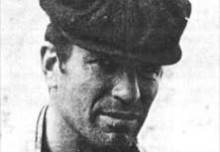Whether you’re writing a feature story or a business report, there’s one key characteristic that will make you stand out from other people: curiosity.
Unless you’re writing fiction, you usually rely on a mix of information that comes from elsewhere – whether it’s statistics, an eyewitness report or an expert opinion (unless you use AI, in which case who knows where that information came from).
An average writer will simply regurgitate what they hear. A good writer, however, will ask questions.
I’ll give you an example from one of my favourite writers of all time, Edna Buchanan.
Buchanan was a Pulitzer Prize-winning crime reporter for the Miami Herald. Instead of pumping out hard news stories in the inverted pyramid style (which requires you to put the most recent or newsworthy item right up the top), she’d instead craft compelling stories that read as if they were hardboiled detective fiction.
The following, for example, is the start of her Pulitzer-winning story:
Gary Robinson died hungry.
He wanted fried chicken, the three-piece box for $2.19. Drunk, loud, and obnoxious, he pushed ahead of seven customers in line at a fast-food chicken outlet.
The counter girl told him that his behavior was impolite. She calmed him down with sweet talk, and he agreed to step to the end of the line. His turn came just before closing time, just after the fried chicken ran out.
He punched the counter girl so hard her ears rang, and a security guard shot him—three times.
There’s so much to love about her writing. The short sentences. The way the words flow. The tease in the first sentence about what’s to come.
Yet to write a story this good you also need curiosity more than anything else.
An average journo would never have asked what Robinson ordered, nor noticed how much the three-piece box cost. But Buchanan knows that the more you learn about something, the more vividly you can bring it to life.
The same applies to business writing, where asking questions can turn an abstract notion into something concrete and tangible.
When I teach plain English writing courses for organisations, for example, I like to use their own content for exercises. There’ll often be a term I don’t understand – and when I ask the group to explain it to me, it’s common for them to disagree about the meaning or not even understand it at all. It’s only then, after they start asking questions and look into it, that they usually find a far better, more specific and accurate way to get across that information.
Asking key questions to uncover the who, what, when, where, why and how is crucial.
If someone tells you they engaged with stakeholders, for example, don’t just repeat that phrase in your writing. Ask them what the engagement was – and who the stakeholders were. “Engaging with stakeholders” is a borderline meaningless phrase. Saying you had face-to-face meetings with all department heads, however, is far clearer.
Simply listing numbers or jargon will never paint a picture in someone’s head. Details, however, will – and you need curiosity to uncover them.
Become a better writer by taking the Writing Essentials online course
This fun, practical and easy to follow self-paced course will teach you how to:
- write in the active voice
- use positive language
- cut copy
- make your intros stronger
- write in plain English
- use the right tone of voice and style
- write in the inverted pyramid style
- know what makes a story interesting
- frontload content
- spot common grammar and punctuation mistakes
- proofread your own work
- write great headlines.
Equivalent to a full-day workshop, there are six sessions that each take between 45 minutes to an hour and a half.
Find out more and enrol




